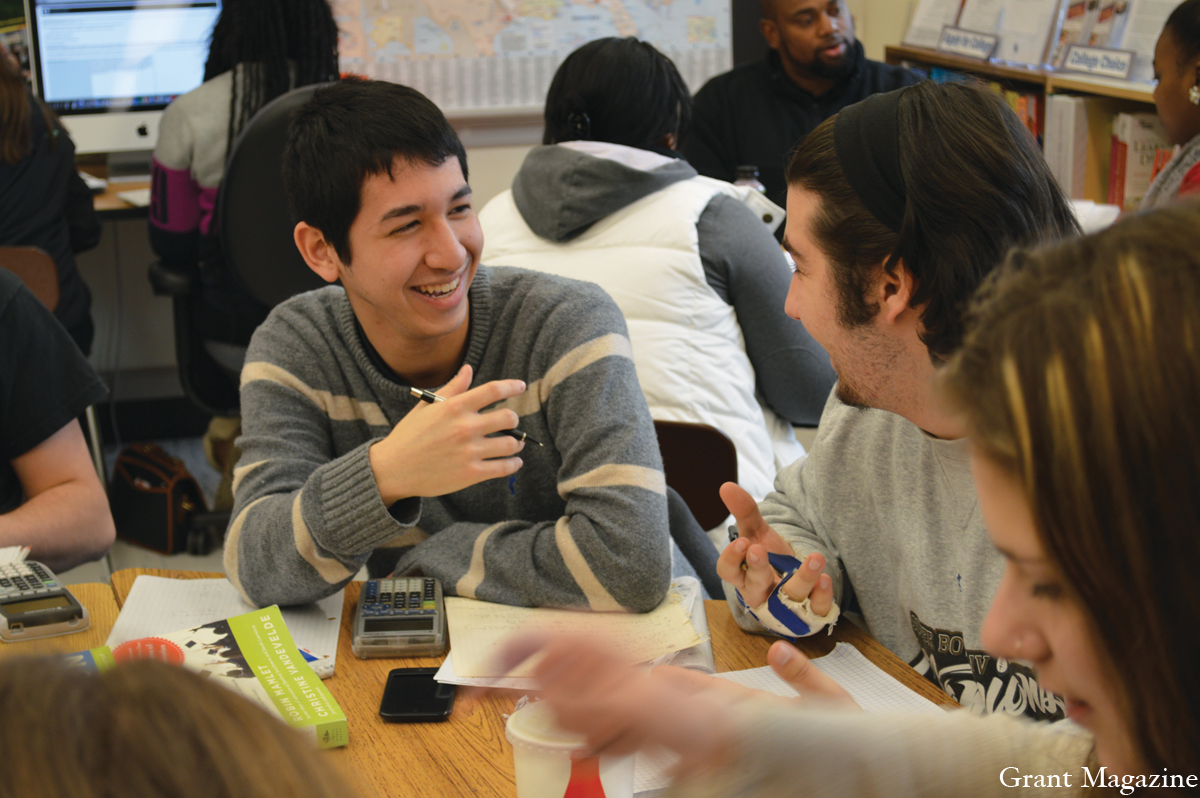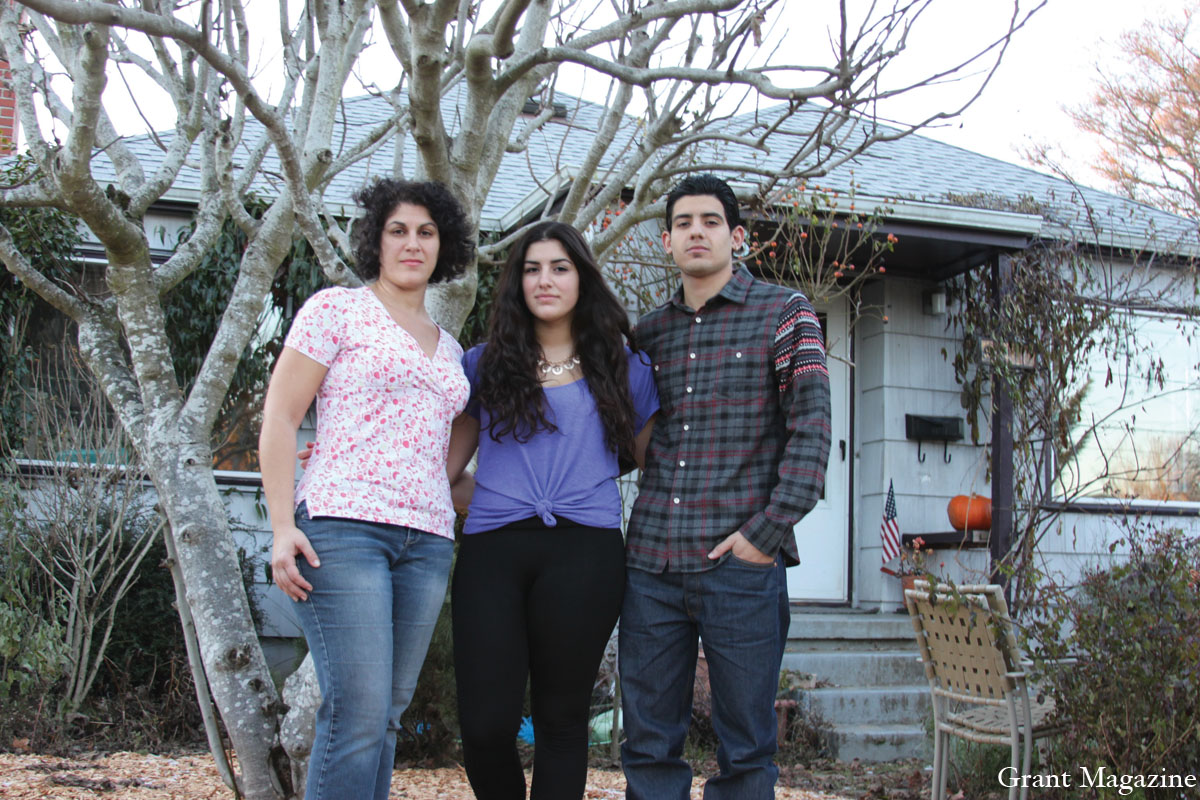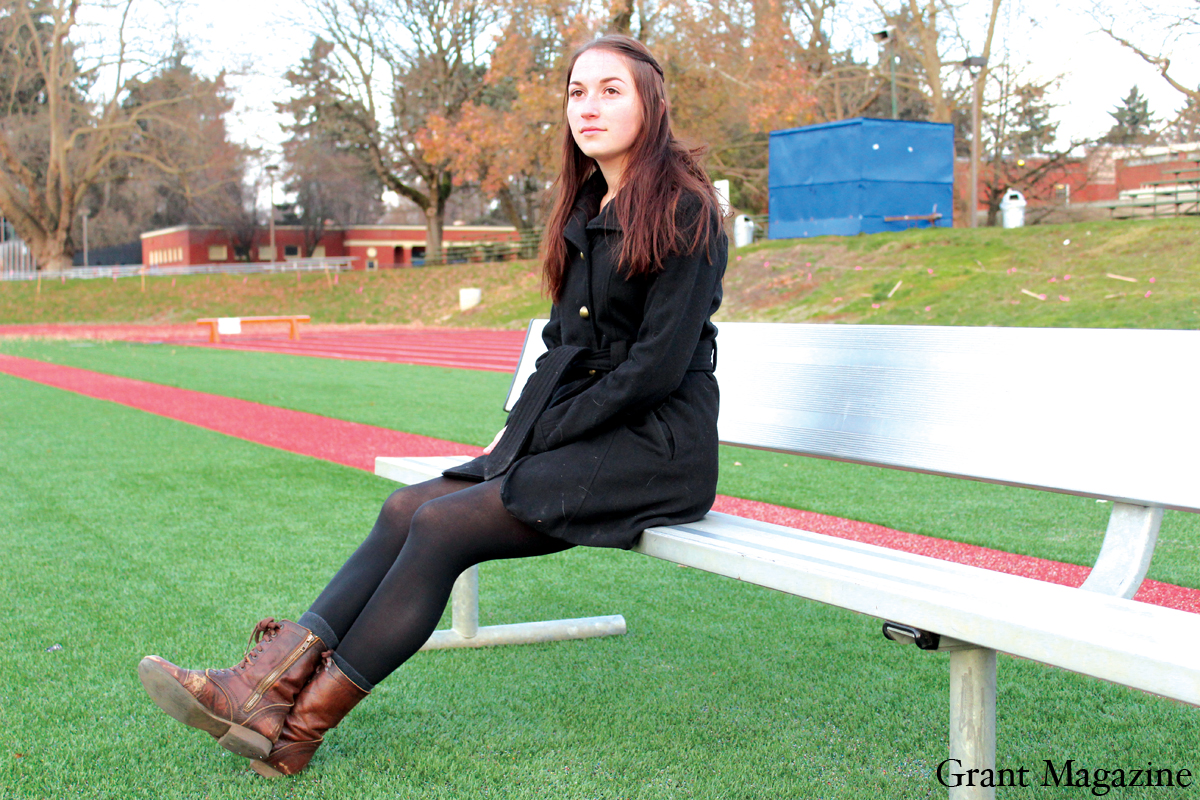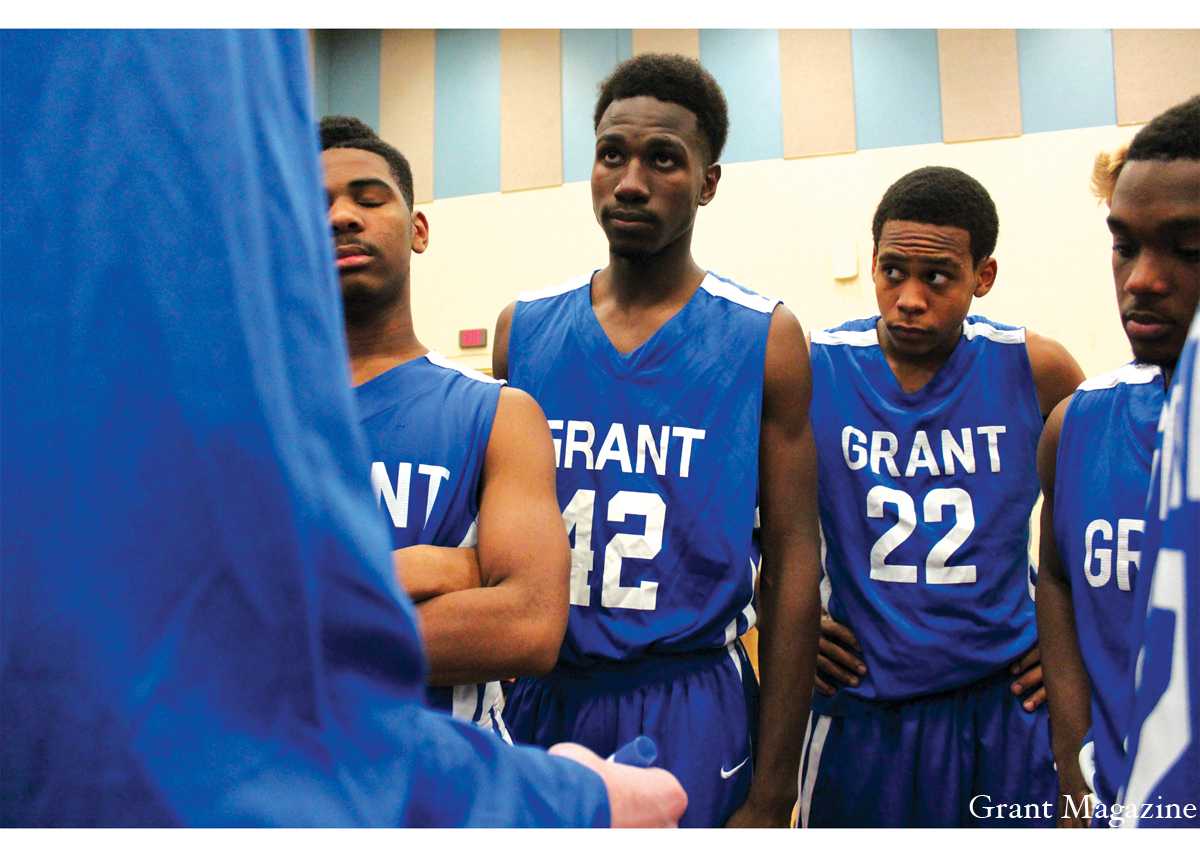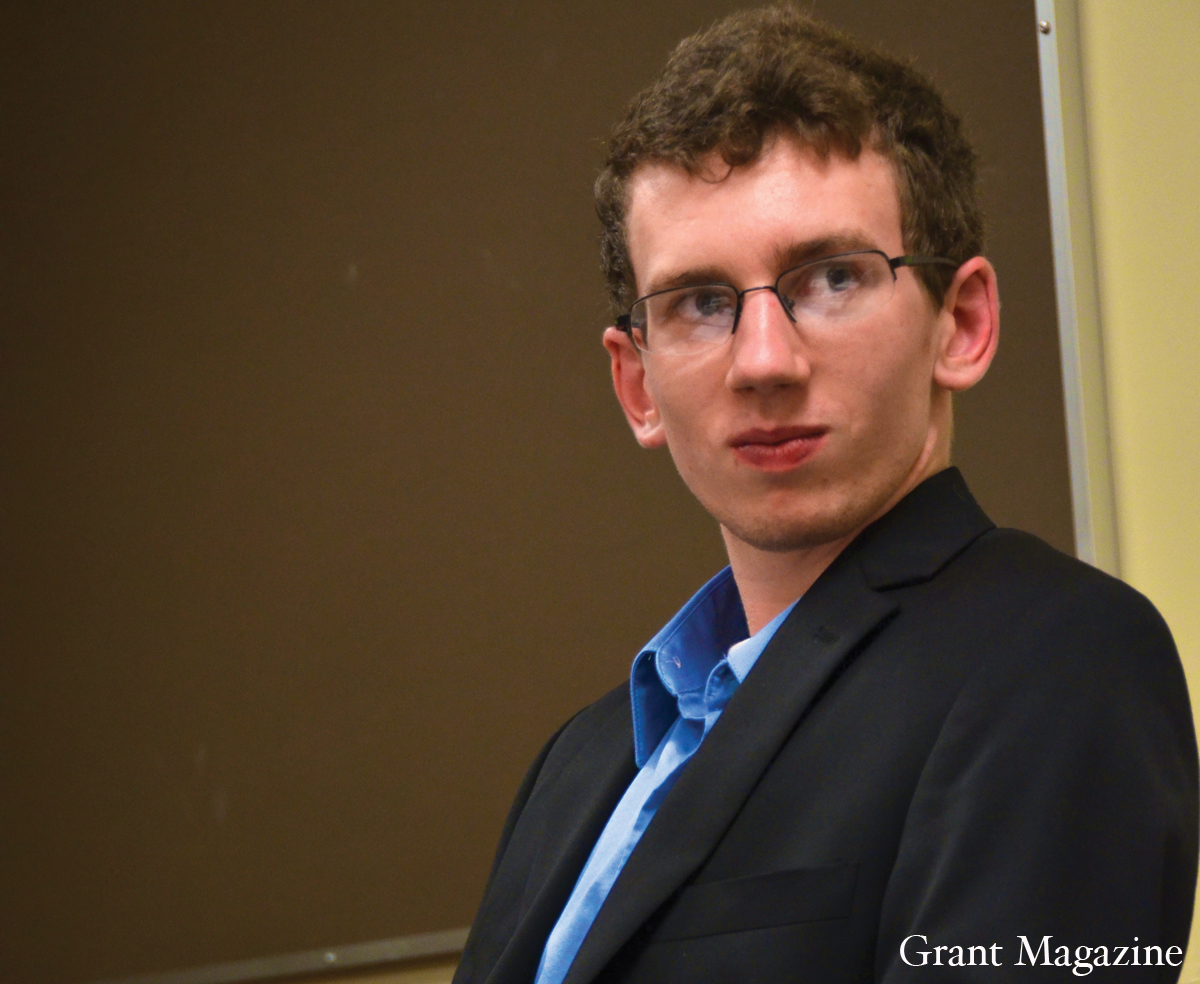At 15, Shane Tarnoff squirmed in his seat on the large international flight, already going over what he would do once he arrived in the United States. He had struggled with his dad for a long time to find a way to travel abroad. “I wanted to explore the stuff that I couldn’t in Japan,” he explains today.
Tarnoff’s original plan was to spend a year away as a foreign exchange student. Three years later, his journey has lasted the length of high school. And he’s relied on little parental guidance to wind his way through adolescence and chart the rest of his life. He’s eager to continue his travels but he has key decisions to make first.
Now a senior at Grant, Tarnoff will have the option to return to Japan when he graduates, and he’ll have to decide soon. “If I’m going to college here, that’s fine,” he says. “I get to keep my friends in America, and if I go back to Japan, it’s fine too.”
Tarnoff grew up in Sapporo, Japan to parents Howard and Yuko Tarnoff. He began his education at a Japanese public school called Konan. “I learned a lot about being humble and respect,” he says.
But it wasn’t entirely right for him. His typical Japanese upbringing took a turn when he decided to move to an international school called Hokkaido International School to learn English. “Everyone looks and kind of acts the same at Konan, especially in middle to high school, so I felt like I needed to go to the International School,” Tarnoff says.
“You don’t realize how good your parents are until you leave.” – Shane Tarnoff
Howard Tarnoff encouraged the move. He grew up in America, and although fluent in Japanese, English was the language he spoke most easily. When he moved to Japan, he melded with the culture, and he never got a chance to speak English to his kids. “I wanted one child who I could communicate with without hang-ups or problems,” he says.
But learning a new language was harder than expected. Tarnoff went to Hokkaido in seventh grade, and the rest of his peers had been learning English since kindergarten. “It was really stressful,” Tarnoff remembers. “I really felt like I couldn’t do it, but I’m competitive. I really didn’t want to lose or give up.”
With encouragement from his dad, Tarnoff learned the language with fluency in six months. “It felt really good,” Tarnoff says.
Once he learned English, Tarnoff got to know everyone at school and became friends with other kids who were also half-Japanese.
He remembers hanging out with a group of these boys when a crowd of female passersby shouted “Justin Bieber!” and ran up to take pictures with them. In Japan, Tarnoff was the American boy.
So he was surprised to find that he was identified as Japanese in the United States.
It was during Tarnoff’s freshman year that he came up with the idea of going to the U.S. as an exchange student. “Everyone was like a small family,” Tarnoff says about his school. “(But) my school was small, so the classes I could take were limited.”
A lot of Tarnoff’s friends would use their English knowledge to do exchange programs, and Tarnoff decided to do the same. “I wanted to explore the other half – the American side of me,” Tarnoff says.
Because of his dad’s background, he is actually an American citizen, so it was hard to get a foreign exchange program to accept him as a Japanese student.
“I honestly just wanted him to forget about it,” Howard Tarnoff says now.
But Tarnoff persisted. “I told him how passionately I wanted to go,” he says. “I guess he kind of did it for me.”
Howard Tarnoff continued searching and he found out that their hometown, Sapporo, has a sister-city alliance with Portland. They got in contact with an administrator for the Japanese Magnet Program, who directed them to an exchange program that would work for Tarnoff.
He flew to Portland at the start of his sophomore year. “My parents thought I was maybe a little too young to go because I was 15 when I left,” says Tarnoff. “But then they saw I was so excited to, like, experience life in America.”
The size of Grant was an intimidating change. Tarnoff remembers having to squeeze by everyone in the halls. “I was shy because I didn’t know anyone at that point,” he says. At his first home stay, he was too timid to tell the family when he was unhappy, and he switched to a different house. “I learned a good skill: Take initiative,” he says.
He sat by senior Trevor von Arx on the first day of health class and introduced himself with a grin, saying “Hi, I’m Shane. I’m from Japan.” Von Arx recalls telling his family about this enthusiastic introduction. The next day in class, Tarnoff invited von Arx to lunch, and the two began a friendship that continues today.
When summer arrived, Tarnoff went back to Japan, engulfing himself in everything he missed about his life there. He indulged in his mom’s food and spent time with his family and friends. His older sister had a newborn daughter, so Tarnoff got a chance to take care of her. Though it was good to be home, Tarnoff was glad he’d been to America. “I feel like getting far away from your parents is really important,” Tarnoff says. “You don’t realize how good your parents are until you leave.”
After such a good summer, Tarnoff was homesick when he went back to the States, but he still returned without hesitation. “Americans in general are good at exposing themselves. They’re more open here; friendlier,” he says.
He spent most of the school year with a student who was a junior at the time. But after a conflict with the family, Tarnoff was removed from the home stay organization. “I really liked their family. It was sad,” he says. He was going to be sent home with only three weeks left in his junior year.
That’s when von Arx heard the news. Von Arx consulted with his family and offered Tarnoff a place to live. His younger brother, Max, started telling his friends that he had a new Japanese brother coming to live with them. Trevor von Arx had to give up his own room for Tarnoff and share one with his little brother instead, but he didn’t mind. It didn’t matter because Tarnoff was such a great match for the von Arx family.
“He was normal in our house,” says mom Karmen von Arx, adding that “He has all of the great American things and none of the bad, and all the great Japanese things and none of the bad.” Tarnoff’s three-week stay at the von Arx home expanded to the following year.
“I’m not scared to do things by myself anymore.” – Shane Tarnoff
“You do feel like a parent,” says dad Eric von Arx, who is determined to teach Tarnoff the humor of sarcasm before he leaves. “I feel like he’s part of the family.”
Now, the family’s only complaint about Tarnoff is the late night Skype sessions he has with friends in Japan.
Tarnoff’s path may veer from the von Arxes when college comes. He has to decide to go to college in the states or in Japan, and he’s torn. His dad would love to see him back in Japan. “For the past three years, we’ve missed out on a lot of stuff together,” Howard Tarnoff says. “But the hardships have really molded him.”
Tarnoff agrees. “I feel like I became a lot more responsible, and I’m not scared to do things by myself anymore,” Tarnoff says.
Today, he and Trevor von Arx spend most of their time together now that they’re under the same roof. They get ready for school, drive to and from school, and return home together where the von Arx parents pepper them both with questions about their day. They’re closer than ever. “I’m glad that I have a host brother that I can trust. I’ve known him for so long,” Tarnoff says.
Tarnoff has made a good group of friends at Grant, and his favorite part of school is the social aspect, but his teachers notice him as well. Kimiko Lupfer is a Japanese teacher at Grant who had Tarnoff as a student. “I think Shane has that Japanese strength and calmness from seeing both sides of the world, two different cultures,” she says.
He wants to go into international business and travel throughout Asia while working to unite Asian countries to the rest of the world despite their cultural differences. “I’m proud to speak two languages,” he says. “I want to utilize that. I want to be the one to make Asia and other countries closer.” ♦



























